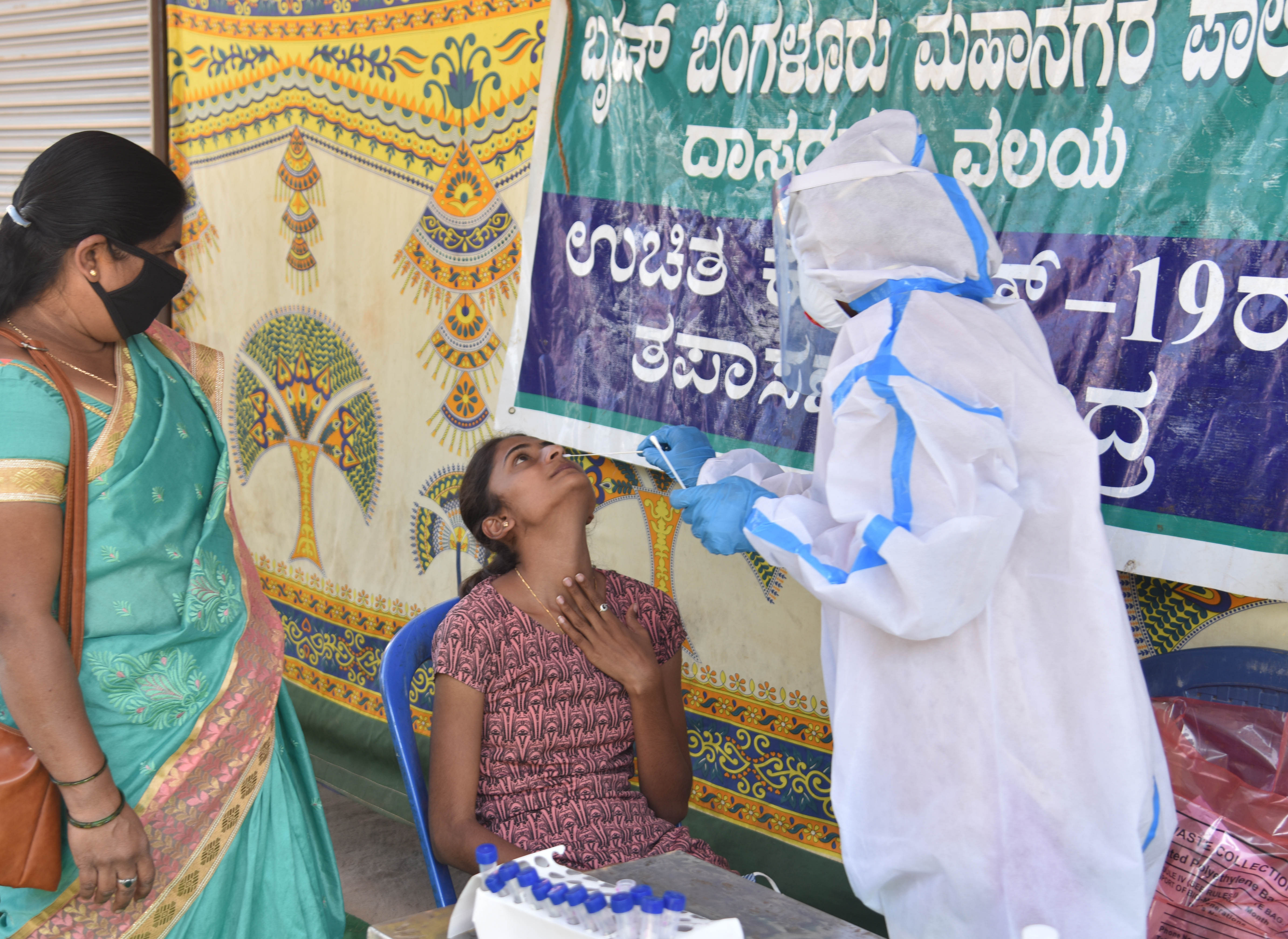
The fluctuating rise and fall of Covid-19 numbers in Bengaluru has puzzled experts. While some cite low testing numbers, others suggest that Sars-CoV-2, the virus that causes Covid-19, has become weaker.
From January 1 to 13, the average case numbers were about 400 per day. However, there were times when Bengaluru Urban’s numbers appeared to surge. On January 8, for example, the numbers rose to 479 and consistently remained above 450 for the next two days, suggesting further increases. However, on January 11, new cases number fell by nearly half, and by January 14, dipped down to 141 — a number not seen in Bengaluru since June 23.
On January 23, numbers rocketed upwards again to 527 before falling down again. On Monday, just 200 new cases were observed in Bengaluru Urban.
A source involved in Covid-19 testing said the fluctuation could be because the virus had become weaker through mutations.
“Follow-up testing of Covid-19 sufferers using rapid antigen and RT-PCR kits shows that many cases are testing negative for the disease within six days of being diagnosed. Previously, it would take between 10 and 14 days. Among people with serious symptoms, it would take much longer than that. Even manifestations of symptoms these days are weak. Symptoms fade away quickly,” he said.
However, the noted epidemiologist Dr Giridhar Babu said that no new variant of the virus had been detected through genomic sequencing so far.
“We are not missing any new trends. As far I know, there is no pattern to the fluctuations in the number of cases. The fluctuations are likely a result of holidays and the availability of healthcare workers to carry out testing,” Dr Babu said.
Meantime, Dr Sujay Prasad, Medical Director, Neuberg Anand Reference Laboratory, said that fewer positives were being found in the smaller batches of swabs being sent for lab processing.
“We have seen a considerable decrease in sample numbers as well as the percentage of positive results. Previously, we used to receive about 5,000 swab samples per day for RT-PCR testing, out of which 1,500 would be positive. Now, it is about 600 swabs per day, out of which only 15-20 positives are being found,” he explained. “It is really surprising because we expected a second wave.”
Declining test rates
Concern is rising over the fall in testing rates. The state is no longer conducting one lakh tests per day.
Even the Bruhat Bengaluru Mahanagara Palike (BBMP), which was conducting nearly 50,000 tests per day in November, is today conducting an average of 32,000 per day.
The BBMP Commissioner, N Manjunatha Prasad, said that the testing rates had come down because the thumb rule called for the testing rate to be 10 times the number of cases.
“Our daily numbers are relatively low. Ideally, we should be conducting only a few thousand tests, but we are conducting 32,000,” he said.